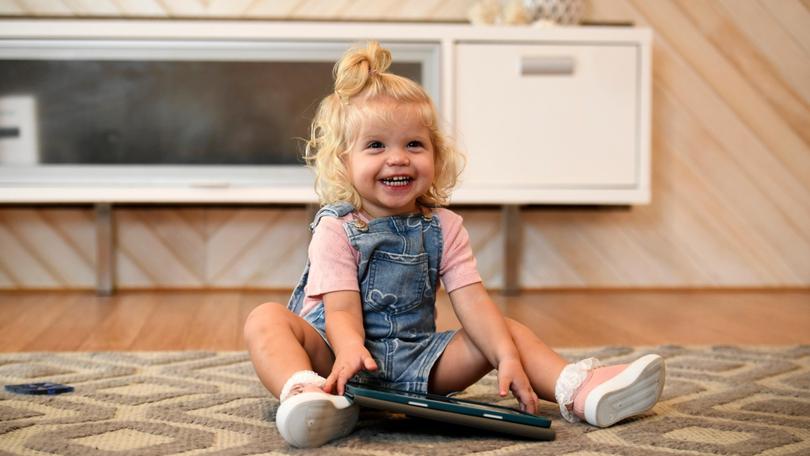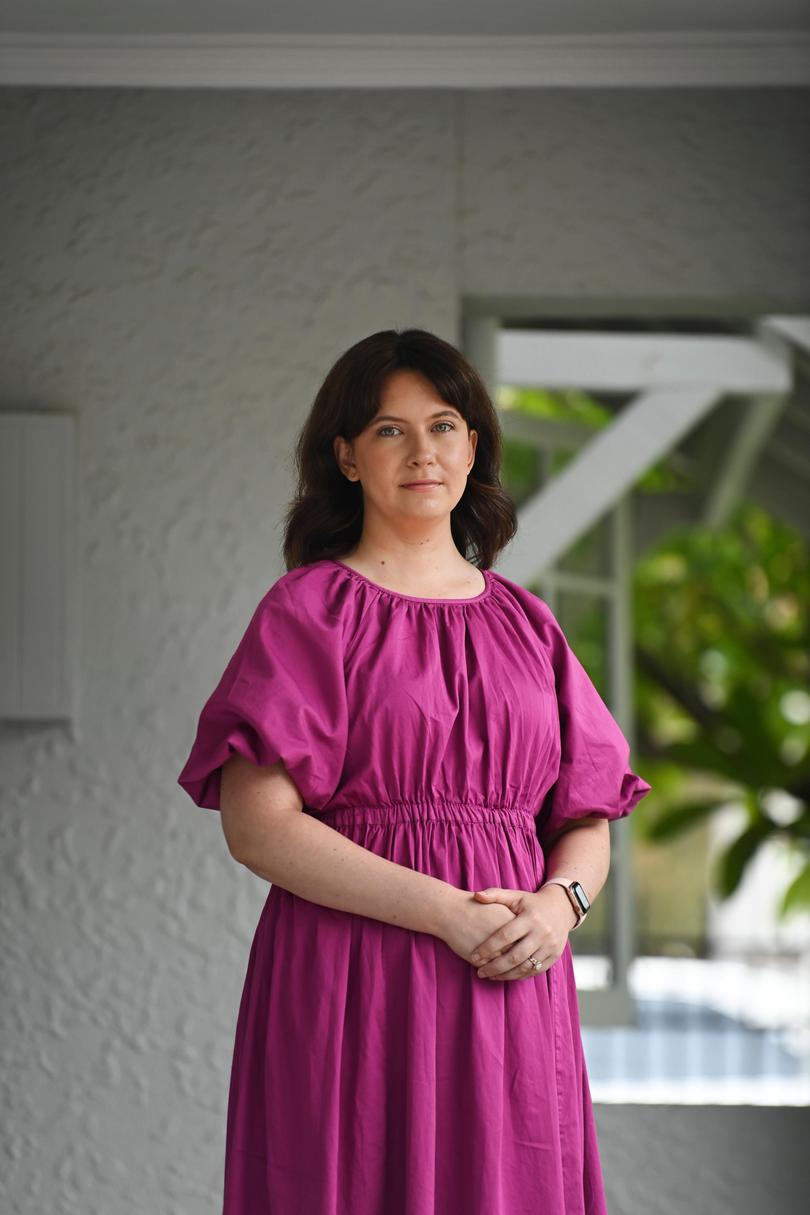Telethon Kids’ Institute study reveals how screen time is replacing vital language opportunities for toddlers
Exposure to screens such as TVs, mobile phones and iPads could mean toddlers are missing out on vital opportunities to learn to talk, an alarming study has revealed.

Exposure to screens such as TVs, mobile phones and iPads could mean toddlers are missing out on vital opportunities to learn to talk, an alarming study has revealed.
Researchers found that for every minute of screen time, kids were exposed to, they heard and spoke fewer words during the critical early years of language development.
Lead author Mary Brushe, from Telethon Kids’ Institute, said the findings suggest that in just one day, the average three-year-old could be missing out on hearing more than 1100 adult words, saying more than 840 vocalisations themselves and around 194 back-and-forth conversations.
Sign up to The Nightly's newsletters.
Get the first look at the digital newspaper, curated daily stories and breaking headlines delivered to your inbox.
By continuing you agree to our Terms and Privacy Policy.“We know the amount of talk and interaction children experience is critical for their early language development — this study highlights that screen time may be getting in the way of that,” she said.
“Our findings support the notion of ‘technoference’ as a real issue for Australian families, where young children’s exposure to screen time is interfering with opportunities to talk and interact in their home environment.”
The findings, published on Tuesday in the Journal of the American Medical Association Pediatrics, reveal that by the time children reach their third birthday the average three-year-old is being exposed to nearly three hours of screen time each day.

The first-of-its-kind study tracked 220 families over two and a half years to measure how families’ screen use might be affecting communication between parents and toddlers.
Speech recognition technology records parent-child talk and noise from screens — including TV programs, games or videos — viewed by the parent or the child.
Kids wore a small digital device for 16 hours — tucked into a pocket of a specially-made T-shirt — with the tests done five times between 12 months and three years.
At the time, parents did not know the aim of the study was to measure their child’s exposure to screens, with their consent sought later.
“This meant we ended up with a more realistic view of young children’s screen exposure because parents were not subconsciously altering their normal habits,” Dr Brushe said.
“If anything, we have probably under-estimated how much screen usage — and associated technoference — is going on around children because we haven’t been able to capture parents’ silent screen-related activities, such as reading emails, texting, or quietly scrolling through websites or social media.”

While screen time had become a part of daily life, Dr Brushe urged families to reduce its impact on toddlers by talking to them when the screen was on, singing along to theme songs and restricting their viewing to high-quality educational content.
“We’re not saying screen time is all bad,” she said. “The reality of modern life is that screens are everywhere, and it should not become another thing that parents are made to feel guilty about.”
Callum Walley, father to 19-month-old Elizabeth, said there were times when she was more settled if watching TV but it was difficult to know how much screen time was too much.
“It’s an easy trap to fall into,” he said.
“We just want what’s best for our kids ... and if there’s anything we can do to make things better for Elizabeth as she grows up, that’s what we want to know.”
